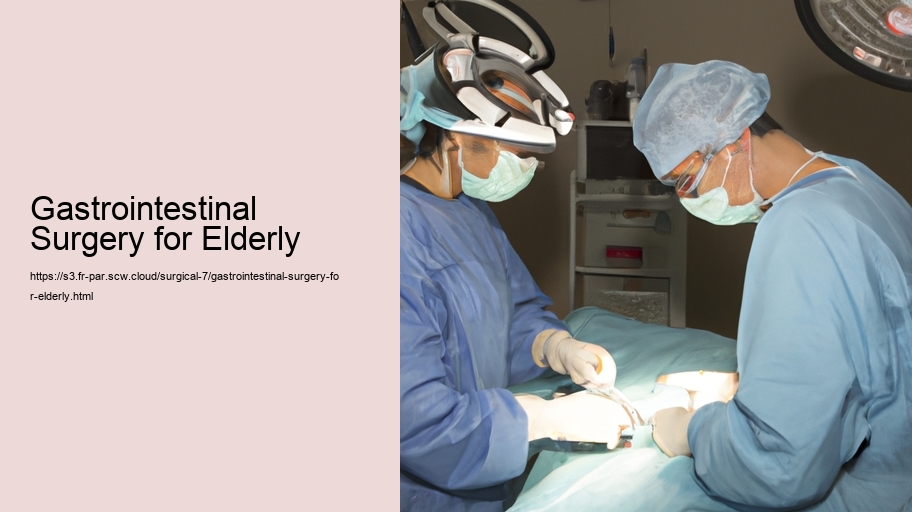Gastrointestinal Surgery for the Elderly: Navigating the Complexities of Aging and Healing
The intersection of gastrointestinal surgery and geriatric care embodies one of the most challenging and delicate aspects of modern medicine. As the global population ages, the frequency with which elderly patients present for surgical intervention within the digestive tract has increased, necessitating a nuanced approach that balances the potential benefits of surgery against the inherent risks associated with aging bodies.
The elderly are a heterogeneous group, with variability in physical health, cognitive function, and social support systems. This diversity necessitates individualized care plans. Before considering surgery, a thorough assessment of the patient's functional status, comorbid conditions, nutritional state, and the support system is imperative. These factors influence not only the decision to operate but also the choice of procedure and the strategy for perioperative management.
Gastrointestinal disorders in the elderly range from benign conditions like gallstones and hernias to more serious diseases such as colorectal cancer and diverticulitis. The decision to operate is often a delicate balance between the urgency of the condition and the patient's ability to withstand surgery and anesthesia. A multidisciplinary approach involving geriatricians, anesthesiologists, nutritionists, and physical therapists is often required to optimize the patient's condition before surgery and to facilitate recovery afterward.
One of the primary concerns with gastrointestinal surgery in the elderly is the higher risk of complications. Advanced age is associated with diminished physiological reserves, making it more difficult for older patients to recover from major surgeries. Postoperative complications such as infections, cardiovascular events, and delirium are more common in the elderly, and these can lead to prolonged hospital stays, increased healthcare costs, and a significant impact on quality of life.
Minimally invasive techniques, such as laparoscopic surgery, have been a boon for elderly patients. These procedures typically result in less pain, shorter hospital stays, and faster recovery times compared to traditional open surgeries. However, they still require careful consideration of the patient's overall health and ability to benefit from such interventions.
Another critical aspect of gastrointestinal surgery in the elderly is the ethical considerations surrounding informed consent and the patient's wishes. It is essential to engage in frank discussions with patients and their families about the goals of surgery, the potential outcomes, and the possibility of life-sustaining treatments postoperatively. Advanced directives and palliative care should be part of the conversation, aligning the surgical intervention with the patient's values and preferences.
Nutrition is a cornerstone of recovery. Malnutrition is prevalent among the elderly and can significantly impair wound healing and immune function, increasing the risk of postoperative complications. A comprehensive nutritional assessment and intervention, when necessary, should be part of the preoperative and postoperative care plan.
Moreover, rehabilitation plays a pivotal role in the postoperative phase. Physical therapy helps to mitigate the loss of muscle mass and strength, a common issue in the elderly, which can be exacerbated by surgical stress and bed rest. A well-structured rehabilitation program can improve functional outcomes and facilitate a return to independence.
In conclusion, gastrointestinal surgery in the elderly is an intricate field that demands careful consideration of the unique aspects of aging. The success of surgical intervention is contingent on a multifaceted approach that includes thorough preoperative evaluation, meticulous surgical technique, vigilant postoperative care, and comprehensive rehabilitation. As the population continues to age, the medical community must remain committed to advancing surgical care for the elderly, ensuring that it is both safe and aligned with the patients' goals for their health and quality of life.
